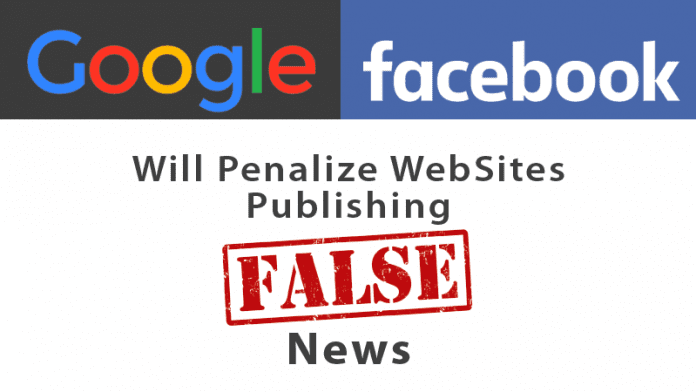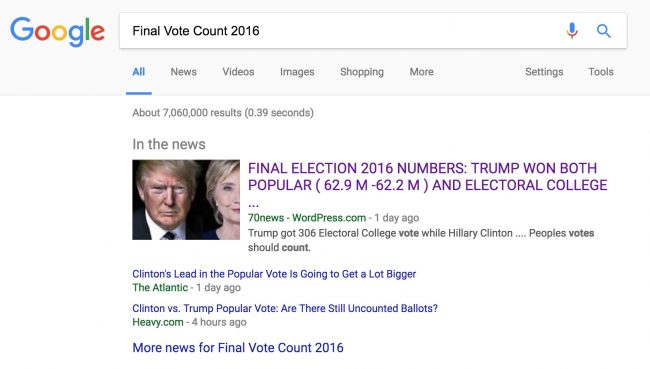If the problem is so old, why only now that decision was made? By pressure. Both Facebook and the Google spent the last few days getting criticism for being, in a way, lax in combating false content. The final straw came with the Donald Trump’s election for the presidency of the United States. Several groups of political and social engagement believe false news have benefited the candidate. Perhaps not a very thorough study can confirm that the false news on the Internet has helped Donald Trump to be elected, but the chances that this has happened are really great, especially with regard to Facebook: it is estimated that 44 % of US citizens use a social network to find and read news. Facebook and Google both have tried to disentangle the charges, of course. As the Mark Zuckerberg itself came to manifest saying that 99% of Facebook’s content is legitimate. But seeing that it would not be enough, the two companies left for a stronger decision (although Google has stated that the measure was being drawn up long ago): ad blocking on false news pages. At first only with changes in terms of use of network advertising for both companies. It is also possible that automatic locking tools are in place, but Facebook and Google did not provide details about it. If it is to combat false content, the ideal would prevent pages such is disclosed and shared, but to do this type of control is very difficult, verging on the unfeasible in the short term, given the ease with which you can create sites or share content on social networks. While comprehensive filtration systems do not arise, prevent the display of ads on these pages can take effect because of one reason: canards are a very profitable business. Sites specialized in this type of content use very effective strategies to get high traffic. An approach that is frequently applied is to create a shocking news with flashy title and display it on a page that looks a lot like legitimate news sites. If the content seems true, then the definitely innocent users will share. With high traffic, the type sites can obtain significant revenue from ads. But, that does not mean that the problem will be solved. Pages that display fake content with political or ideological goals, for example. Little or nothing will be affected by the decision, as well as sites that publish false news with fraudulent intent to persuade a person to buy a miracle cure for weight loss, get fairer skin instantly or get buffed in 24Hrs for example.



